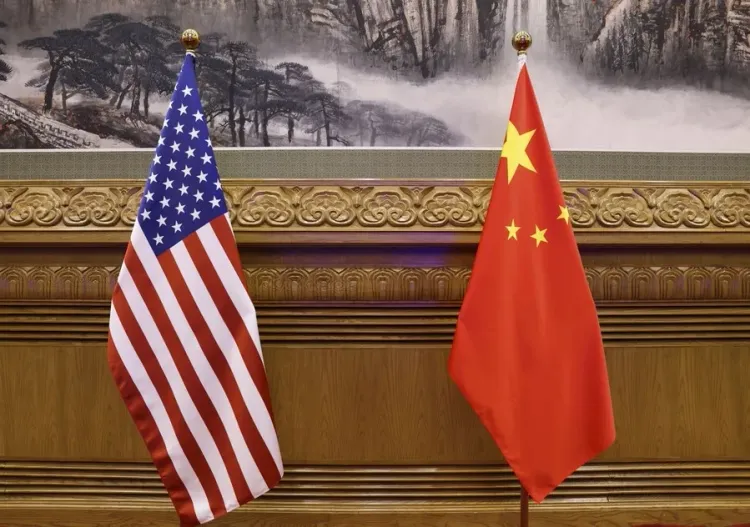China's Strategy to Endure Trump's Trade Conflict While Influencing Allies

Synopsis
Key Takeaways
- China aims to outlast the trade war with the U.S.
- New tariffs have heightened tensions between superpowers.
- China will ignore further U.S. tariff increases.
- Xi Jinping's visits are part of a regional strategy.
- Long-term implications for trade relations are uncertain.
Washington, April 12 (NationPress) China is endeavoring to outlast the intensifying trade conflict with the United States while simultaneously exerting pressure on U.S. allies to hedge, according to a former U.S. diplomat. The escalation in tensions follows President Donald Trump's implementation of new tariffs and China's subsequent retaliatory measures.
Daniel Russel, who served as a former assistant secretary of state for East Asian and Pacific affairs and is now vice president at the Asia Society Policy Institute (ASPI), shared these insights after the U.S. elevated tariffs on Chinese imports to 145 percent, while China raised tariffs on U.S. products to 125 percent, as reported by Yonhap news agency.
In response to the tariff increase, China indicated it would “ignore” any further U.S. tariffs on Chinese goods, asserting that the current duty levels have rendered American exports to China unacceptable.
“By proclaiming it will ‘ignore’ future U.S. tariff escalations, Beijing is not aiming to win the trade war but rather to outlast it and outmaneuver Trump,” Russel stated. “China's objectives include bolstering its economy, enhancing diplomatic influence, and maintaining pressure on U.S. allies to hedge their bets.”
Russel alluded to a situation where U.S. allies might seek to strengthen trade relationships with China or diversify their trade routes following Trump's tariff actions.
He noted that President Xi Jinping's forthcoming visits to Vietnam, Malaysia, and Cambodia are part of a strategy to reinforce China's economic connections in the region amid Washington's alienation of its partners.
Wendy Cutler, ASPI's vice president and managing director, and a former negotiator of the South Korea-U.S. free trade agreement, opined that China is prepared for a prolonged struggle.
“China has also acknowledged that it has reached a limit in retaliating with tariffs, potentially indicating it possesses additional strategies that could be deployed if the U.S. takes further action today,” she remarked.
“The steep tariffs currently enforced—145 percent on Chinese imports and 125 percent on U.S. imports—effectively stifle trade between these two global economic giants.
Cutler mentioned that the duration of these tariffs remains uncertain, but eventually, both Washington and Beijing will recognize the necessity of re-engagement to address the deteriorating situation.
In the meantime, The Wall Street Journal has reported that the Trump administration has initiated efforts to negotiate “ad hoc” agreements with over 70 countries concerning tariffs, with any potential agreements likely to be less comprehensive than full trade agreements.
According to Senator Bill Hagerty, who served as ambassador to Japan during Trump's initial term, the administration may accept written commitments from foreign trading partners for certain economic reforms.









